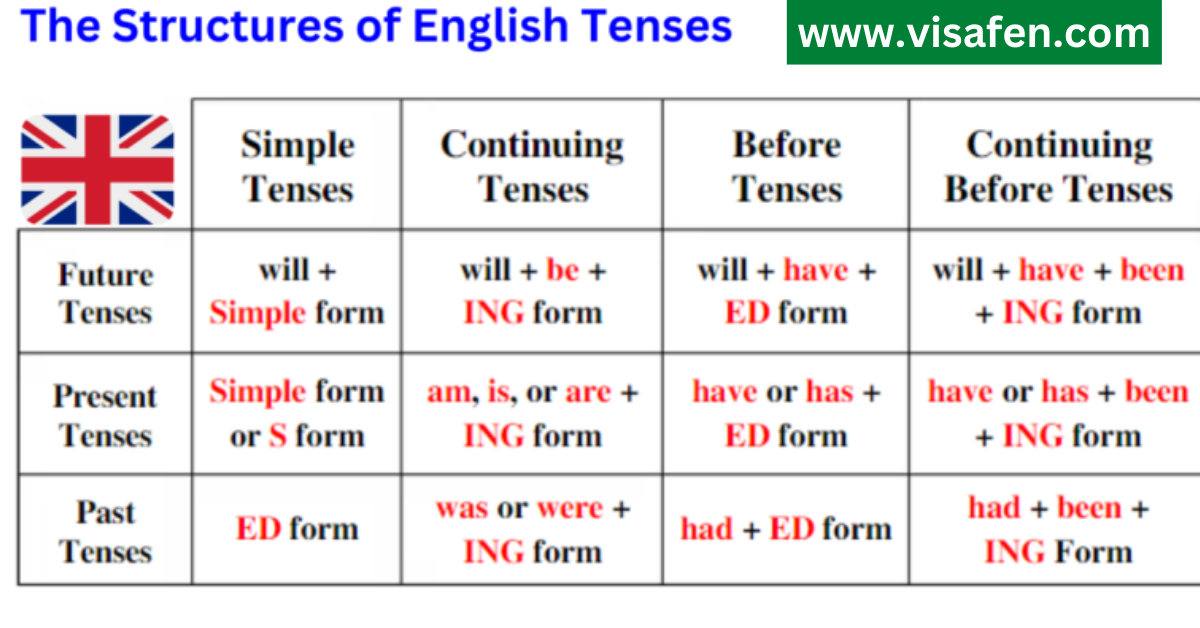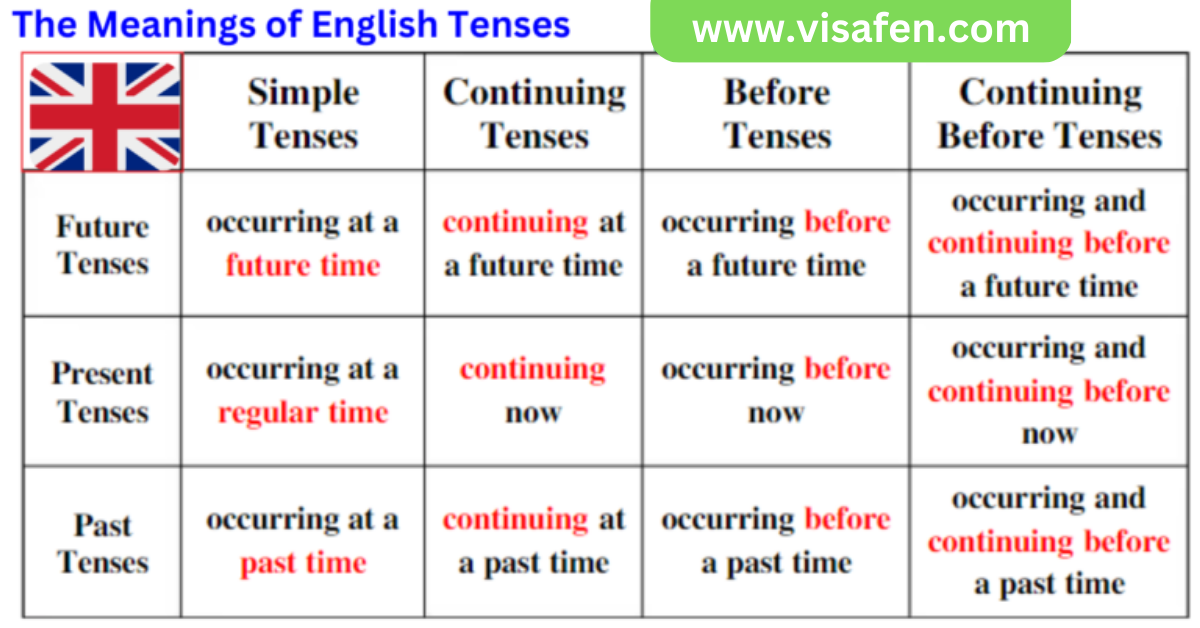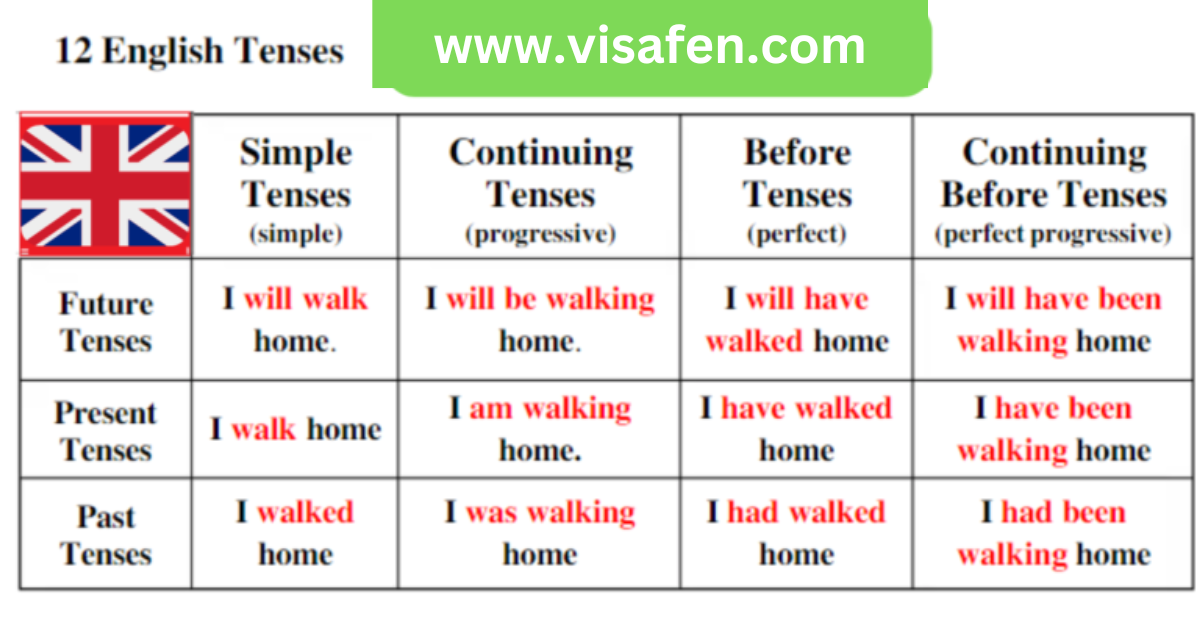Past Perfect Continuous Tense
Learn English tenses -Past Perfect Continuous Tense
The English Tense System
The links below are to lessons for each of the 12 basic tenses.
In each lesson we look at two aspects of the tense:
- Structure: How do we make the tense?
- Use: When and why do we use the tense?
Some lessons look at additional aspects, and most of them finish with a quiz to check your understanding.
Present Perfect Continuous Tense
Past Perfect Continuous Tense
Future Perfect Continuous Tense
Tenses
We use different tenses to describe the time that the verb refers to.



Past perfect continuous tense
The past perfect continuous is formed with had been + –ing form:
She had been battling against cancer for years before she died.
The past perfect continuous tense is used most often to express that something started in the past and continued until another event in the past. It can also be used for reasons and explanations for things in the past.
We form the past perfect continuous tense by using had, then been, then the main verb in present participle form.
| Subject | Had | Been | Verb
(present participle) |
Rest of Sentence |
| I/you/we/they/he/she/it/Helen | had | been | driving | for six hours. |
When to Use the Past Perfect Continuous Tense
An Action that Started in the Past and Continued until another Event or Time in the Past
Use the past perfect continuous to express that one action began and continued until another event (expressed in the past simple) in the past.
- I had been writing the essay for five hours before I noticed it was an optional assignment.
- The actors had been rehearsing since 8:00 am, and everyone wanted to take a break.
- By the time my boss told me to take a break, I had been working continuously for 17 hours.
Note: Words like “for” and “since” are often used to measure how long an action continued until the interrupting action.
To Give a Reason or Explanation for Something in the Past
- It had been snowing a lot, so driving was dangerous.
- Danielle was sweaty because she had been exercising.
- Justin had been baking cookies and was covered in flour.
Note: As with all continuous tenses, you can’t use stative verbs or the stative versions of mixed verbs.
Negative Statements
The negative of past perfect continuous is very simple –- just add “not” between the “had” and the “been” before the present participle:
- Louise had not been drinking, so she offered to drive everyone home.
- The dog was sick, and had not been eating.
- The children had not been playing, but they pretended to play when their mother came into the room.
Question Forms
Information Questions about the Subject
To make a question about the subject of a sentence, use a question word as the subject. the form is: question word + “had” + “been” + main verb (present participle) + rest of sentence:
- ??? had been driving the car when it hit the lamp post. –>
- Who had been driving the car when it hit the lamp post?
- ??? people had been running in the marathon when the storm hit. –>
- How many people had been running in the marathon when the storm hit?
- ???’s cat had been scratching the chair to shreds until we declawed her. –>
- Whose cat had been scratching the chair to shreds until we declawed her?
Questions about the Verb or Words after the Verb
To make a yes/no question about the verb or words after the verb, put the “had” in front of the subject:
- Had you been listening to the radio to find out about the tornado?
- Had he been sleeping when I called?
- Had Alice been staying with you long?
To make an open-ended question about the verb or words after the verb, put a question word (who, what, where, when, why, how) before the “to be” verb in front of the subject:
- Where had you been listening to the radio?
- How long had he been sleeping when I called?
- Where had Alice been traveling when you met?